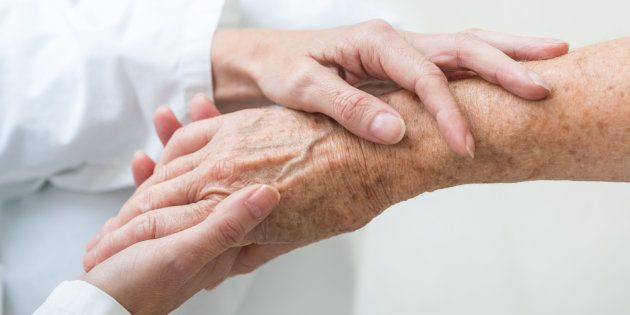6) 27th April 2004: Euthanasia: report sent back to committee (AFP)
« Following a long debate on euthanasia, based on the report by Dick Marty (Switzerland, LDR), the Assembly decided not to vote on the text but instead to refer it back to committee.
The parliamentarians gave the Social, Health and Family Affairs Committee a year to prepare a new text which brings together the widely diverging approaches expressed during the debate.
Dick Marty, who himself proposed the reference back to committee, nonetheless regretted the “too numerous misunderstandings” on the question and deplored “taboos, dogmatism and a refusal to discuss”.
He hoped that the committee would submit a revised text which “no longer speaks of euthanasia, but uses another term which can do justice to a real problem existing in our society”».
7) 17th December 2004: Draft resolution on “Assistance to patients at end of life” presented by Mr Dick Marty to the “Commission of social, health, and family affairs” (adopted by 13 votes against 7), and to be submitted to the Parliamentary Assembly of the Council of Europe on the 27th April 2005).
http://assembly.coe.int/ASP/APFeaturesManager/defaultArtSiteView.asp?ArtId=119
9) 27th April 2005: New failure for a resolution on euthanasia in the Council of Europe (AFP, Strasbourg, 27 April 2005) – The members of parliament of the Council of Europe showed again on Wednesday their differences on euthanasia, by rejecting massively a resolution which invited the 46 States members of the organization to discuss the “Assistance to patients at end of life”.
For lack of consensus, debate on a report elaborated by Swiss Dick Marty (Liberal) had been already removed of the agenda of the parliamentary Assembly of the Council of Europe ( APCE) in Strasbourg in September 2003, then in January 2004 before being sent back in commission in April, 2004. On Wednesday, a new version of Mr Marty’s resolution, which wanted to be more consensual than the first one, was rejected by 138 votes against 26, to the term of more than three hours of debates and the presentation of 71 amendments.
These last ones aimed to satisfy the adversaries the euthanasia by calling notably “to inform better the public about dangers associated to the legislation favorable to the euthanasia” or by clarifying in the resolution that “allow euthanasia mean violating the principle of the respect for the rights and the dignity of man”.
“Passive or active euthanasia is a daily reality which one did not want to see opposite today” Mr Marty regretted in front of the press, after the debates.
He clarified to be however satisfied by the final refusal of his resolution “distorted” by amendments: “Nobody asks for the legalization of the euthanasia, we wanted simply to draw the attention of the governments on the underground and vague legal which surrounds euthanasia and to ask that a debate is opened in every country” he added, estimating that his resolution had been rejected because the members of parliament “do not want to hear speaking about euthanasia”.
9a) 27 avril 2005 (French original text): Nouvel échec pour une résolution sur l’euthanasie au Conseil de l’Europe (AFP, Strasbourg, 27 avril 2005) – Les parlementaires du Conseil de l’Europe ont une nouvelle fois affiché mercredi leurs divergences sur l’euthanasie, en rejetant massivement une résolution qui invitait les 46 Etats membres de l’organisation à débattre de l'”accompagnement des malades en fin de vie”.
Faute de consensus, le débat sur un rapport élaboré par le Suisse Dick Marty (Libéral) avait déjà été retiré de l’ordre du jour de l’Assemblée parlementaire du Conseil de l’Europe (APCE) à Strasbourg en septembre 2003, puis en janvier 2004 avant d’être renvoyé en commission en avril 2004. Mercredi, une nouvelle version de la résolution de M. Marty qui se voulait plus consensuelle que la première, a été rejetée par 138 voix contre et 26 pour, au terme de plus de trois heures de débats et la présentation de 71 amendements.
Ces derniers visaient à satisfaire les opposants à l’euthanasie en appelant notamment à “mieux informer le public sur les dangers associés à la législation favorable à l’euthanasie” ou en précisant dans la résolution que “permettre l’euthanasie signifie violer le principe du respect des droits et de la dignité de l’homme”.
“L’euthanasie passive ou active est une réalité quotidienne qu’on n’a pas voulu voir en face aujourd’hui”, a regretté M. Marty devant la presse, après les débats.
Il a précisé être toutefois satisfait du rejet final de sa résolution “dénaturée” par les amendements.
“Personne ne demande la légalisation de l’euthanasie, nous voulions simplement attirer l’attention des gouvernements sur la clandestinité et le flou juridique qui entoure l’euthanasie et demander qu’un débat soit engagé dans chaque pays”, a-t-il ajouté, estimant que sa résolution avait été rejetée car les parlementaires “ne veulent pas entendre parler d’euthanasie”.



